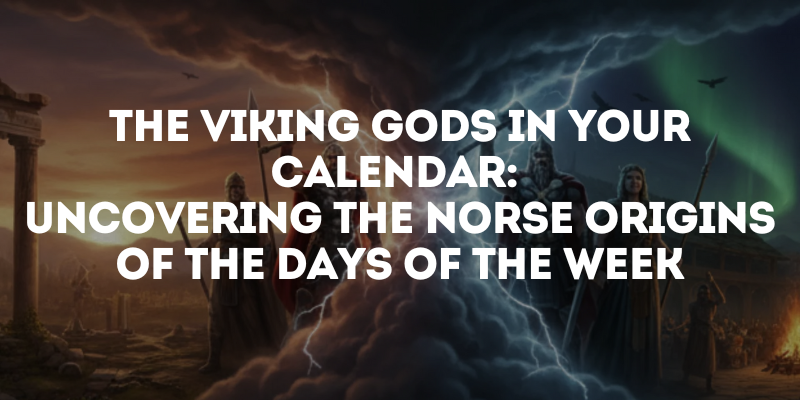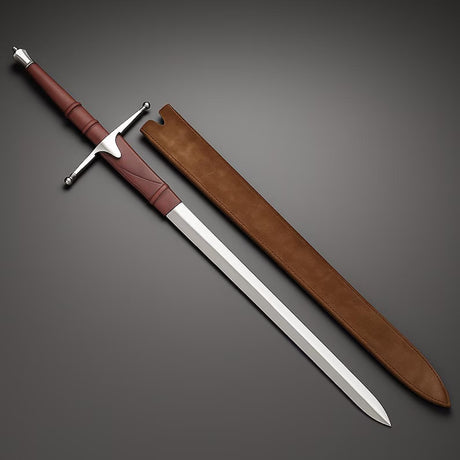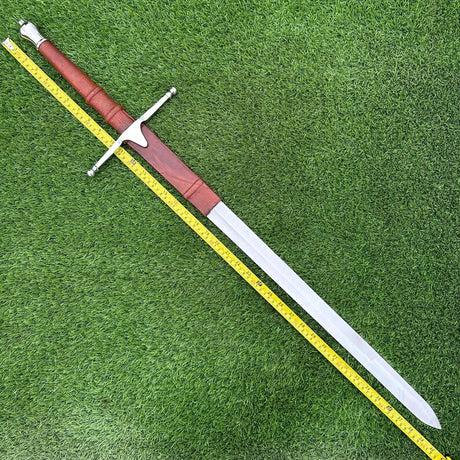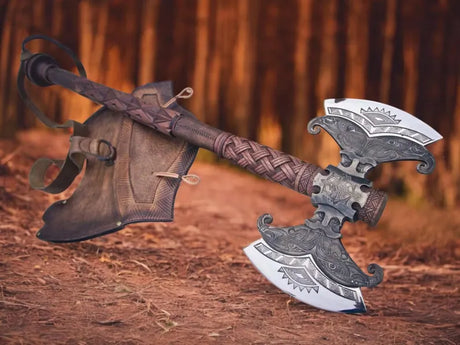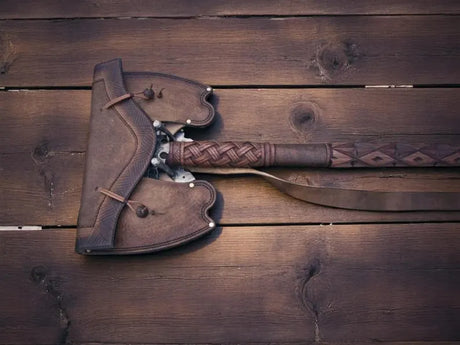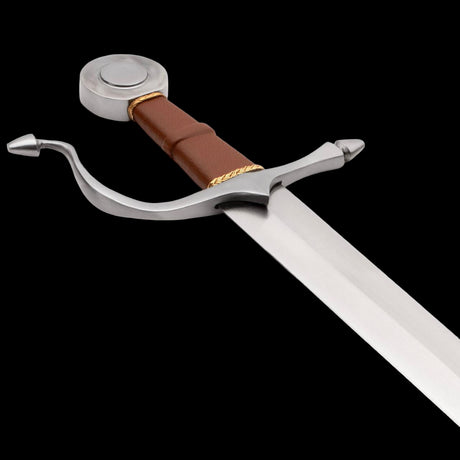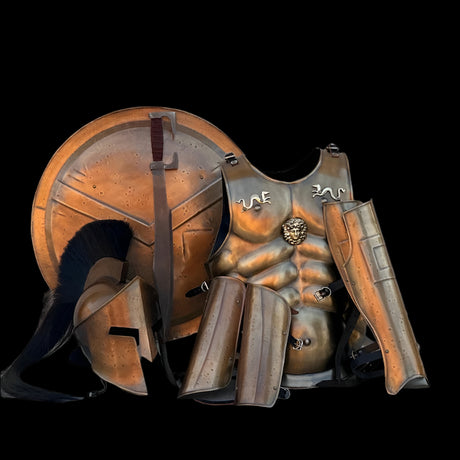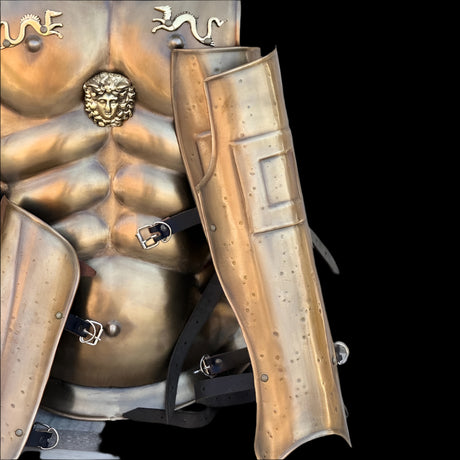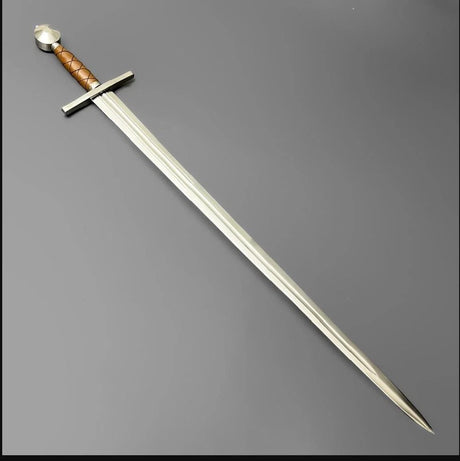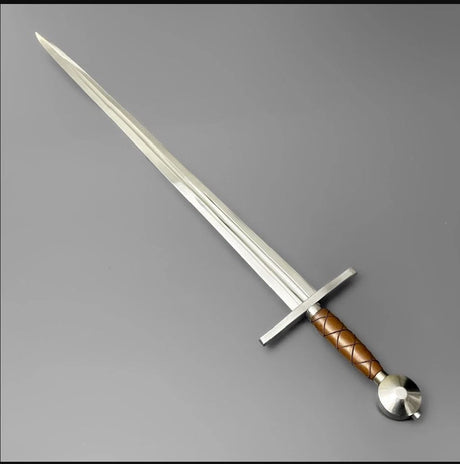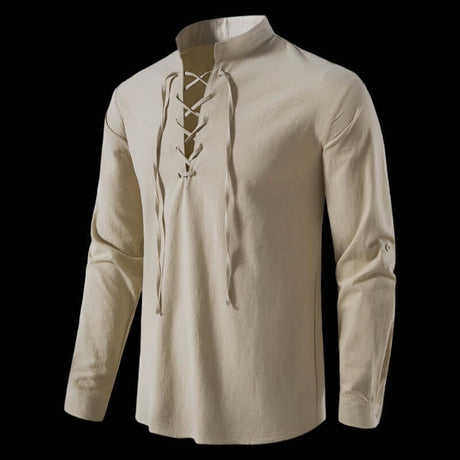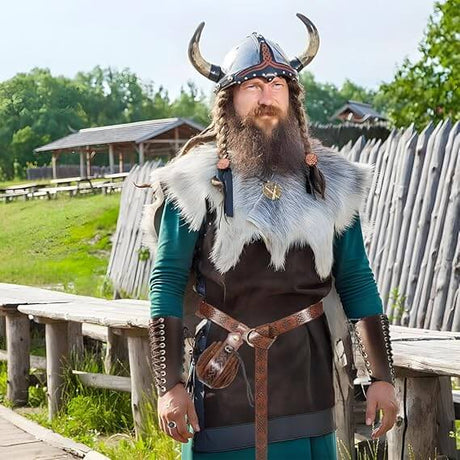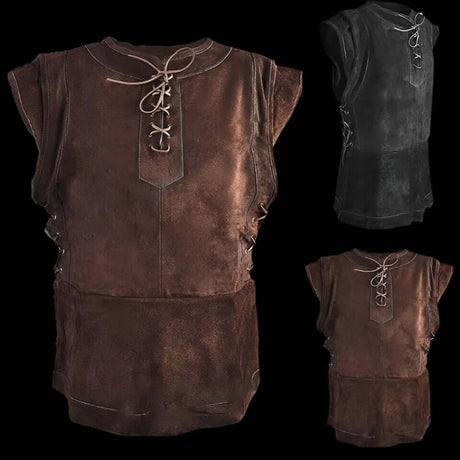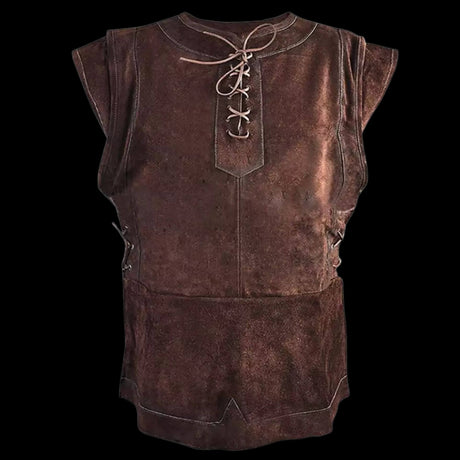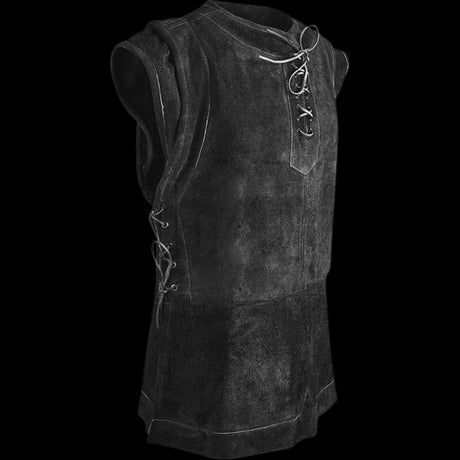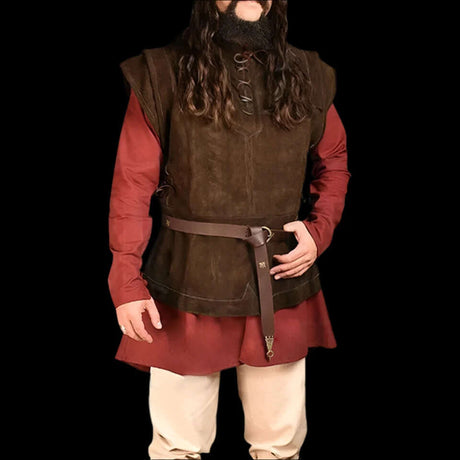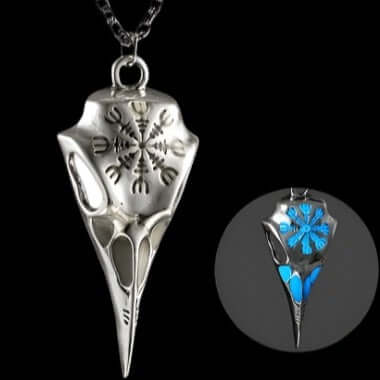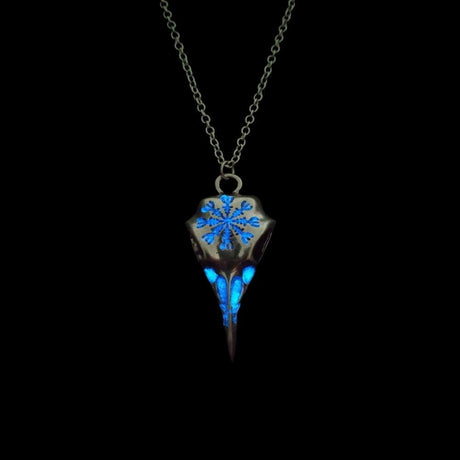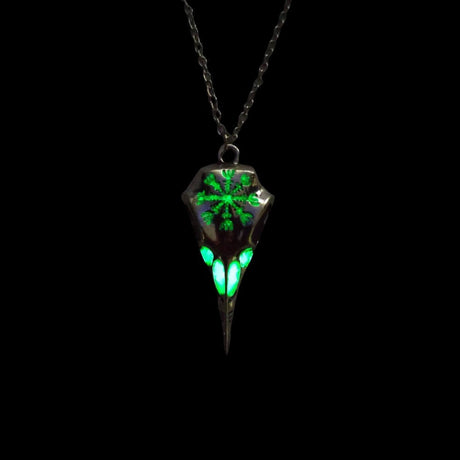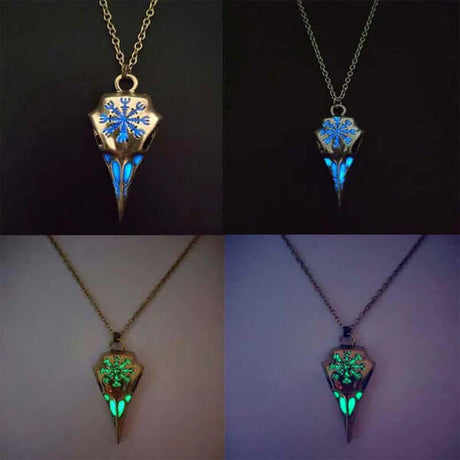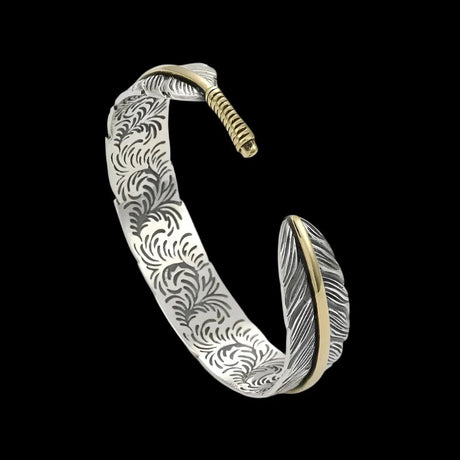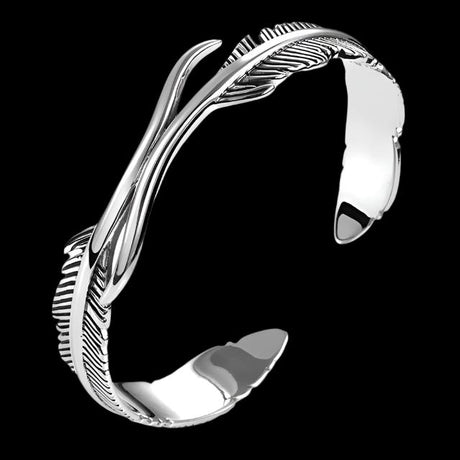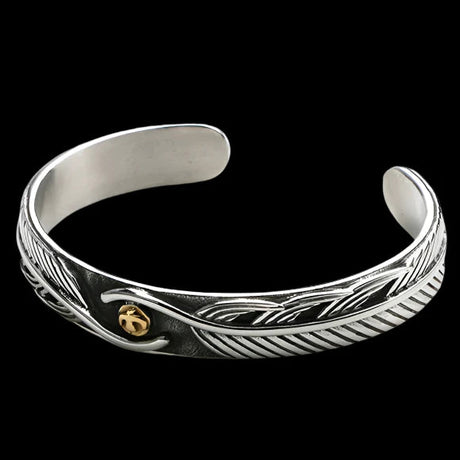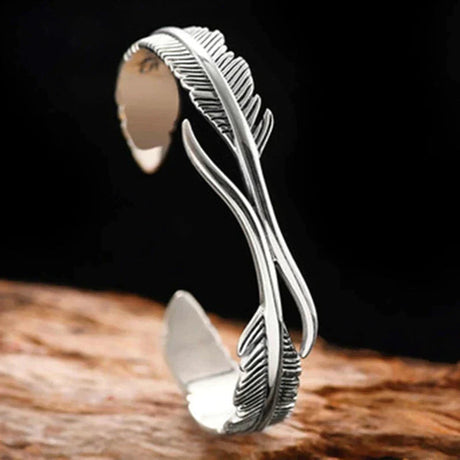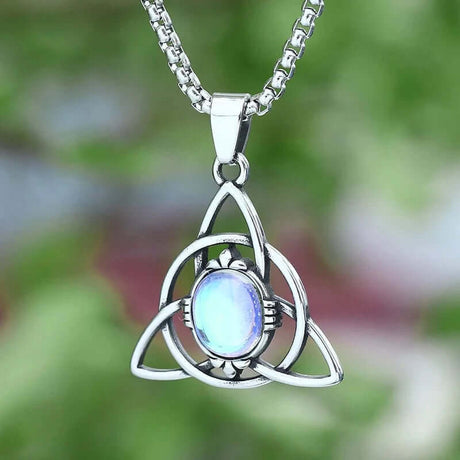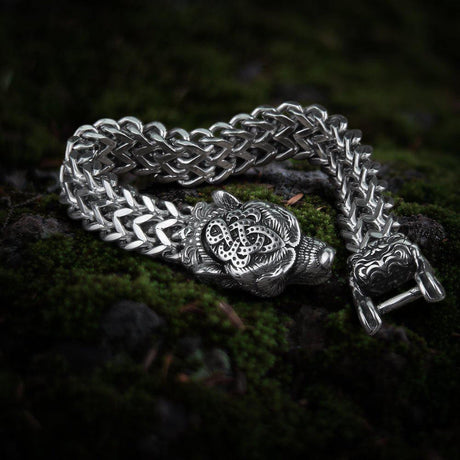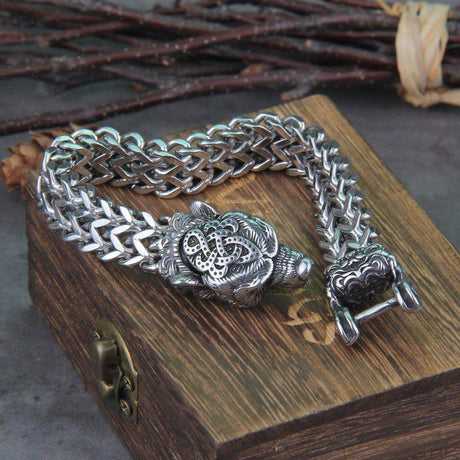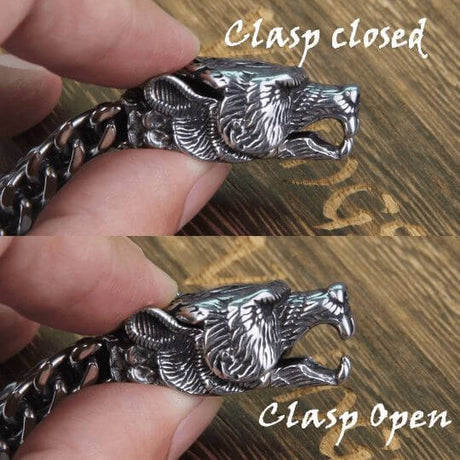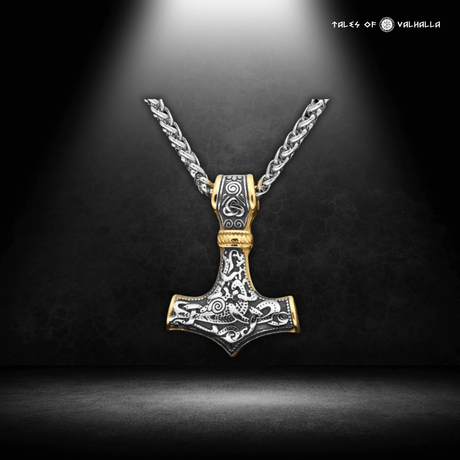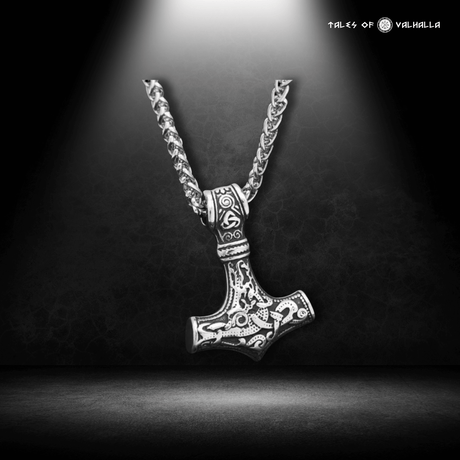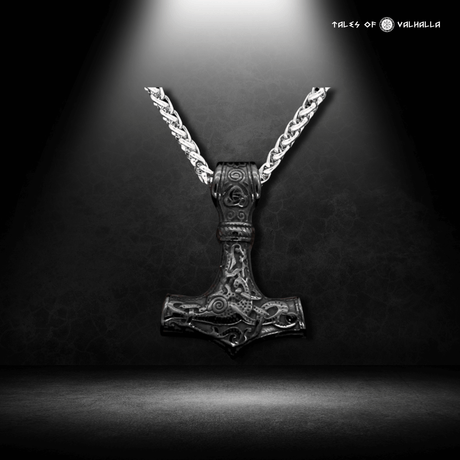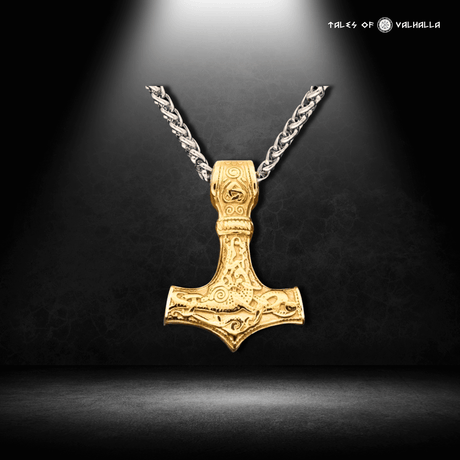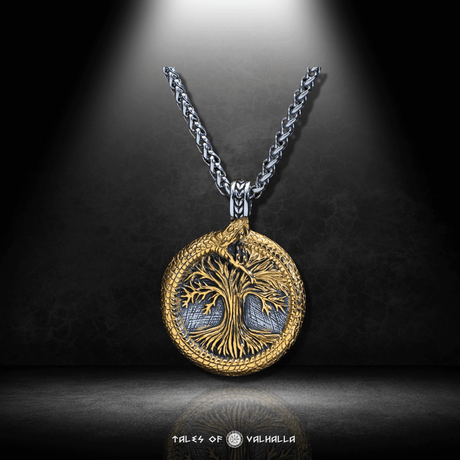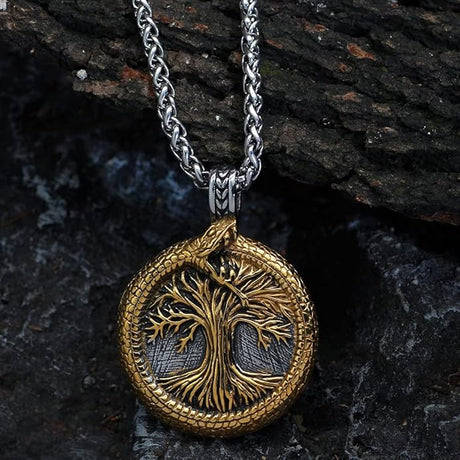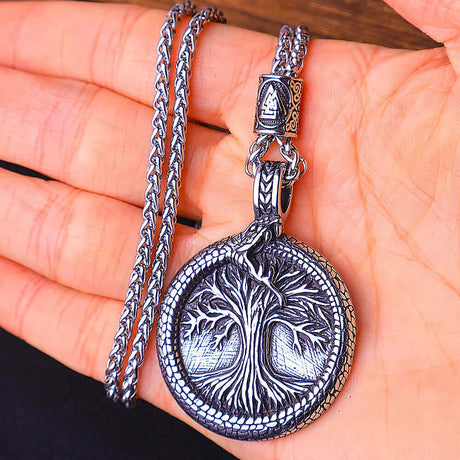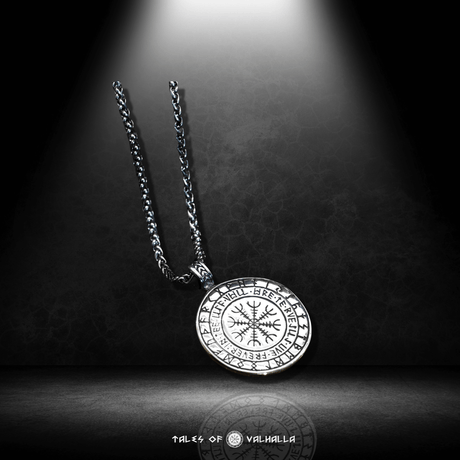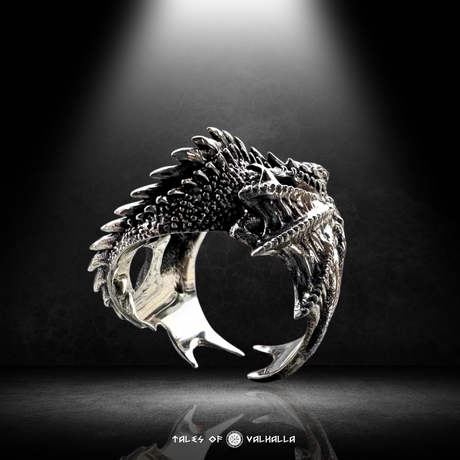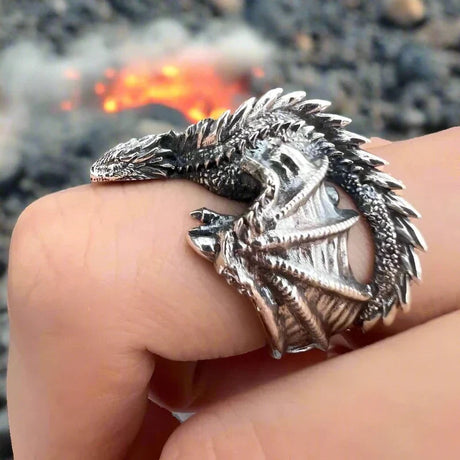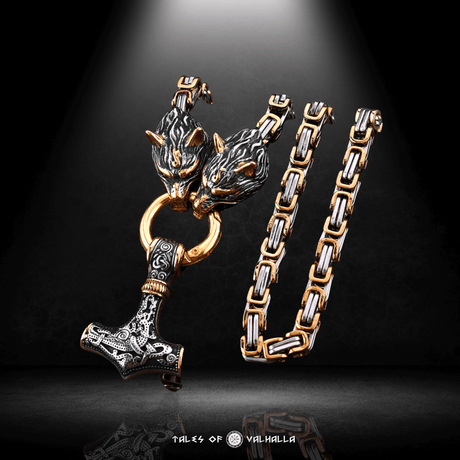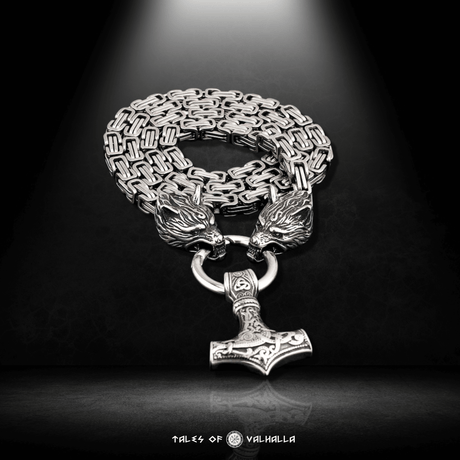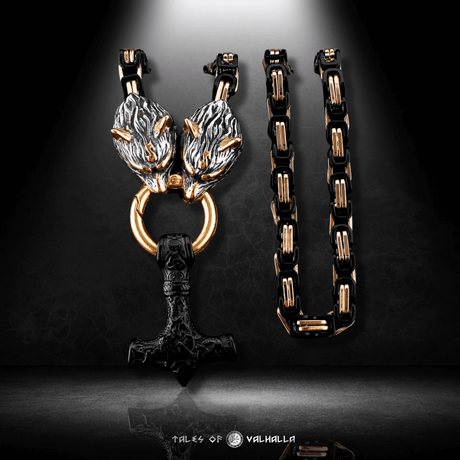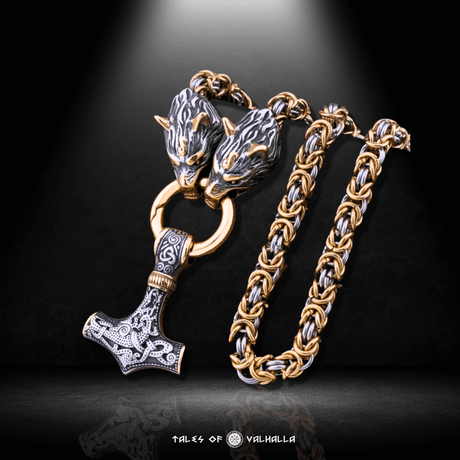Tuesday, Wednesday, Thursday, Friday. To most of us in the United States, these are just names on a calendar, markers that get us through the workweek towards the weekend. But what if I told you that every time you say these words, you are speaking the names of ancient, powerful Norse deities? What if your weekly schedule is, in fact, a hidden memorial to the great pantheon of Viking Gods?
The story of our English days of the week is a fascinating linguistic journey, a tale of cultural exchange where Roman planets met Germanic deities. This deep dive will decode the secrets hidden in your weekly planner, revealing the surprising and profound connection between our modern calendar and the Viking Gods of old. We will explore how a system from ancient Rome was adopted and transformed by the ancestors of the Vikings, leaving a legacy so powerful that we still honor their gods every single week, often without even realizing it.
The Roman Foundation: A Planetary System
To understand where the Viking Gods come in, we first need to look back at the system they adapted. The concept of a seven-day week was spread across the ancient world and standardized by the Romans. They named the days of the week after the seven classical celestial bodies they could see, which they in turn had named after their most important gods:
- The Sun
- The Moon
- Mars (God of War)
- Mercury (Messenger God)
- Jupiter (King of the Gods, God of Thunder)
- Venus (Goddess of Love)
- Saturn (God of Agriculture and Time)
This system, dies Solis, dies Lunae, dies Martis, etc., spread throughout the Roman Empire and formed the basis for the weekdays in many modern Romance languages like Spanish, French, and Italian.
The Germanic Makeover: How Norse Gods Replaced Roman Deities
As the Roman Empire's influence spread north, it encountered the various Germanic peoples, including the ancestors of the Anglo-Saxons and the Norsemen. These cultures adopted the practical seven-day week system, but they weren't content to keep the Roman names.

The Germanic Makeover: How Norse Gods Replaced Roman Deities
Interpretatio Germanica: A Cultural Translation
In a process scholars call interpretatio germanica, they looked at the attributes of the Roman gods and substituted them with the closest equivalent from their own pantheon. They kept the system but swapped out the divine patrons. It wasn't a formal committee decision, but a gradual cultural translation. This is the crucial step where the Viking Gods find their way into our week.
A Shared Heritage
This substitution happened across the Germanic world. The names we use in English today come most directly from the Anglo-Saxons, who settled in England from the 5th century. Their gods were nearly identical to the Viking Gods, just with slightly different names in their Old English language. For example, the Norse god Óðinn was called Wōden by the Anglo-Saxons. When the Vikings later raided and settled in England, their shared pantheon made this cultural-linguistic link even stronger.
Decoding the Week: Day by Day with the Viking Gods
Let's break down the week and uncover the hidden Norse deity behind each day.
Sunday and Monday: The Celestial Pair
These two are the most straightforward and are direct translations across cultures.
- Sunday: From the Old English Sunnandæg, meaning "Sun's Day." This is a direct translation of the Latin dies Solis. It honors the personified sun goddess, Sól in Norse mythology.
- Monday: From the Old English Mōnandæg, meaning "Moon's Day." This is a direct translation of the Latin dies Lunae. It honors the personified moon god, Máni, brother of Sól.
The real substitutions, and the most powerful connections to the Viking Gods, begin on Tuesday.
Tuesday: The Day of Tyr, God of War and Justice
- The Link: Tuesday comes from the Old English Tīwesdæg, meaning "Tiw's Day." Tiw was the Anglo-Saxon equivalent of the Norse god Týr. They replaced the Roman god of war, Mars (dies Martis), with their own.
- Who Was Tyr? Tyr is one of the oldest and most interesting of the Viking Gods. In the early Germanic period, he may have been a sky-father god, even more prominent than Odin. By the Viking Age, he was known primarily as the god of war, but specifically of law, justice, and heroic glory. He was the god of the formal, orderly aspects of combat, as opposed to Odin's frenzied, chaotic battle magic.
- The Ultimate Sacrifice: Tyr's most famous story is a testament to his incredible courage and sense of justice. When the gods needed to bind the monstrous wolf Fenrir, the beast refused to be chained unless one of them placed their hand in his mouth as a show of good faith. Only Tyr was brave enough to do so. When Fenrir realized he had been tricked and could not break the magical fetter, he bit off Tyr's hand. Tyr's sacrifice saved the gods from destruction, cementing his status as the bravest of them all.
Story Vignette: The Binding of the Wolf
Imagine the scene on the remote island of Lyngvi. The monstrous wolf Fenrir, already immense and powerful, eyes the gods with suspicion. They present a thin, silken ribbon—the magical fetter Gleipnir. Fenrir senses a trick. "I will not be bound," he growls, "unless one of you places his hand in my mouth as a pledge." The gods look at each other, fear in their eyes. Who would make such a sacrifice? Then, Tyr steps forward, his face grim but resolute. He places his right hand between the wolf's massive jaws. The gods apply the ribbon, and as it tightens, Fenrir struggles but cannot break it. With a roar of betrayal and fury, the wolf's jaws snap shut. Tyr does not cry out. He stands, one-handed, having sacrificed his sword hand for the sake of order and the safety of the realms. This is the god of Tuesday—a god of immense courage and sacrifice, one of the most honorable Viking Gods.
Wednesday: The Day of Odin, the Allfather
- The Link: Wednesday comes from the Old English Wōdnesdæg, meaning "Woden's Day." Woden was the Anglo-Saxon name for the chief of the Norse pantheon, Odin. He was chosen as the equivalent of the Roman messenger god, Mercury (dies Mercurii).
- Why Odin = Mercury? This might seem like an odd pairing at first. Mercury was a god of travelers, commerce, and messages. Odin was the god of war, death, wisdom, and magic. The connection lies in their shared roles as wanderers and psychopomps (guides of souls). Both were associated with wisdom and knowledge, and both were seen as travelers who moved between the worlds.
- Who Was Odin? Odin is the most complex of all the Viking Gods. He is the Allfather, ruler of Asgard, but he is no benevolent king. He is a relentless seeker of knowledge and power, often through cunning and sacrifice. He gave one of his eyes for a drink from the Well of Wisdom and hung himself from the World Tree for nine nights to learn the secrets of the runes. He is a god of poetry and magic, but also a god of the battle frenzy, who incites conflict to gather slain warriors for Valhalla.
Story Vignette: The Seeker's Price
Imagine Odin, cloaked and hooded, standing before the Well of Mimir, its waters shimmering with cosmic knowledge. The guardian, Mimir, tells him the price for a single drink: one of his eyes. There is no hesitation. Odin plucks the eye from his head and drops it into the well. The pain is searing, but as he drinks from the water, visions flood his mind. He sees the past, the present, and the threads of the future, including the coming of Ragnarök. This is the god of Wednesday—a deity defined by his insatiable thirst for knowledge and his willingness to pay any price for it. The legacy of these Viking Gods is one of sacrifice.
Thursday: The Day of Thor, the Thunderer
- The Link: Thursday is perhaps the most famous and direct link. It comes from the Old English Þūnresdæg, meaning "Thunder's Day," which became Thursday. Þunor (Thunder) was the Anglo-Saxon name for the Norse god Thor. He was the clear equivalent of the Roman king of the gods and god of thunder, Jupiter or Jove (dies Iovis).
- Why Thor = Jupiter? The connection is obvious. Both were powerful, bearded sky-gods associated with thunder and lightning. Jupiter wielded lightning bolts; Thor wielded the mighty hammer Mjölnir. Both were seen as powerful champions of order and protectors of their respective realms.
- Who Was Thor? Thor was the son of Odin and arguably the most beloved of the Viking Gods among the common people. He was a straightforward, powerful, and courageous champion, the defender of both gods and humanity (Midgard) against the forces of chaos, primarily the giants. He rode a chariot pulled by two goats, and his hammer, Mjölnir, was a symbol of strength and protection worn as an amulet by many Vikings.
Story Vignette: The Protector's Storm
Imagine a Viking farmer, caught in a sudden, violent thunderstorm. The sky turns black, and thunder cracks so loudly the ground shakes. He is frightened, but he also feels a sense of awe. This is not just weather; this is Þunor riding across the sky. This is Thor doing battle with the giants at the edge of the world. He clutches the small iron hammer amulet around his neck and whispers a prayer for the storm to pass and for the god to protect his home and family. This is the god of Thursday—a mighty, relatable protector, the most celebrated of the warrior Viking Gods.
Friday: The Day of Frigg (or Freyja?), Queen and Goddess of Love
-
The Link: Friday comes from the Old English Frīgedæg, meaning "Frigg's Day." Frigg was the Anglo-Saxon equivalent of the Norse goddess Frigg. She was chosen as the counterpart to the Roman goddess of love and beauty, Venus (dies Veneris).
-
The Frigg/Freyja Debate: This is the most debated day of the week. While the name clearly points to Frigg (Odin's wife, goddess of marriage and motherhood), the Roman equivalent, Venus, has more in common with the Norse goddess Freyja, who was the goddess of love, beauty, sex, and fertility.
-
The Case for Frigg: As the Queen of the Gods and a powerful matriarchal figure, she was a natural choice to pair with the Roman queen of the gods' mother (Venus was Aeneas's mother, making her an ancestor of the Romans).
-
The Case for Freyja: Freyja's domains of love and desire align almost perfectly with Venus.
-
A Shared Origin? Many scholars believe that Frigg and Freyja may have originated as a single goddess in earlier Germanic paganism, and their roles later diverged. It's possible that for the people naming the day, the distinction was not as clear as it is in the later myths. This ambiguity makes Friday a fascinating window into the evolution of the Viking Gods.
-
-
Who Were Frigg and Freyja? Frigg was the stately Queen of Asgard, a figure of wisdom and domestic power. Freyja was a Vanir goddess, a passionate figure of love, magic, and also a fierce war goddess who claimed half the slain in battle.
Saturday: The Roman Holdout
-
The Link: Saturday is the only day in English that largely retains its original Roman name, from the Old English Sæturnesdæg, meaning "Saturn's Day," after the Roman god Saturn.
-
Why No Viking God? Why wasn't there a substitution? There are a few theories. One is that the Anglo-Saxons and Norse simply didn't have a major deity who was a clear equivalent to Saturn. Another is that by the time the seven-day week was fully adopted, Christian influence was already beginning to take hold, and the process of substitution simply stopped.
A Guide to Your Week: A Comparative Table
This table breaks down the fascinating journey of our weekdays from their planetary origins to their Norse-inspired names.
| Modern Day | Modern English Name | Old English Origin | Roman God / Planet | Substituted Norse/Germanic God | Key Godly Domain |
| Sunday | Sunday | Sunnandæg (Sun's Day) | Sol (The Sun) | Sól (Norse Sun Goddess) | The Sun |
| Monday | Monday | Mōnandæg (Moon's Day) | Luna (The Moon) | Máni (Norse Moon God) | The Moon |
| Tuesday | Tuesday | Tīwesdæg (Tiw's Day) | Mars | Týr | War, Justice, Sacrifice |
| Wednesday | Wednesday | Wōdnesdæg (Woden's Day) | Mercury | Odin (Woden) | Wisdom, Magic, Poetry, War |
| Thursday | Thursday | Þūnresdæg (Thunder's Day) | Jupiter (Jove) | Thor (Þunor) | Thunder, Strength, Protection |
| Friday | Friday | Frīgedæg (Frigg's Day) | Venus | Frigg / Freyja | Love, Marriage, Fertility |
| Saturday | Saturday | Sæturnesdæg (Saturn's Day) | Saturn | (None - Roman name retained) | Agriculture, Time |
Why Does This Linguistic Legacy Matter?
Discovering the hidden history in our calendar is more than just a fun trivia fact. It's a powerful reminder of the deep and often invisible influence of past cultures on our modern lives.
A Living Connection to the Past
Language acts as a cultural fossil. The words we use every day carry the DNA of the people who spoke them centuries ago. The fact that we still speak the names of Viking Gods (or their Anglo-Saxon cousins) every week is a living connection to the pre-Christian world of Northern Europe. It shows that cultures don't just disappear; they blend, adapt, and leave behind powerful echoes.
The Depth of Norse Influence
This linguistic legacy demonstrates that the impact of the Norse and other Germanic peoples was not just in the battles they fought, but in the very structure of their worldview and language—a structure we inherited. The pantheon of Viking Gods was so integral to their understanding of the cosmos that they mapped it onto time itself.
A New Perspective on the Everyday
Knowing this history can fundamentally change the way you see your own week. Tuesday is no longer just the day after Monday; it's a nod to a one-handed god's courage. Thursday isn't just "hump day's" neighbor; it's the day of the Thunderer. This knowledge enriches our everyday language, transforming the mundane into the mythological. It’s a secret history, hidden in plain sight.
Conclusion
The answer to the question "Are Viking Gods remembered in the days of the week?" is a resounding yes. Four days of our standard work week—Tuesday, Wednesday, Thursday, and Friday—are enduring monuments to the great deities of the North: Tyr, Odin, Thor, and Frigg/Freyja. They are linguistic fossils, preserving the beliefs of a bygone era in the amber of our everyday language.
This incredible legacy shows that the Norse and Anglo-Saxon cultures did not simply vanish; they were absorbed and transformed, leaving behind powerful echoes that we still encounter daily. The next time you check your calendar or plan your week, take a moment to remember the ancient Viking Gods who are still, in a way, a part of our modern lives. Their names have outlasted their temples, their stories have outlived their worshippers, and their power still resonates in the simple words we use to mark the passage of time.

